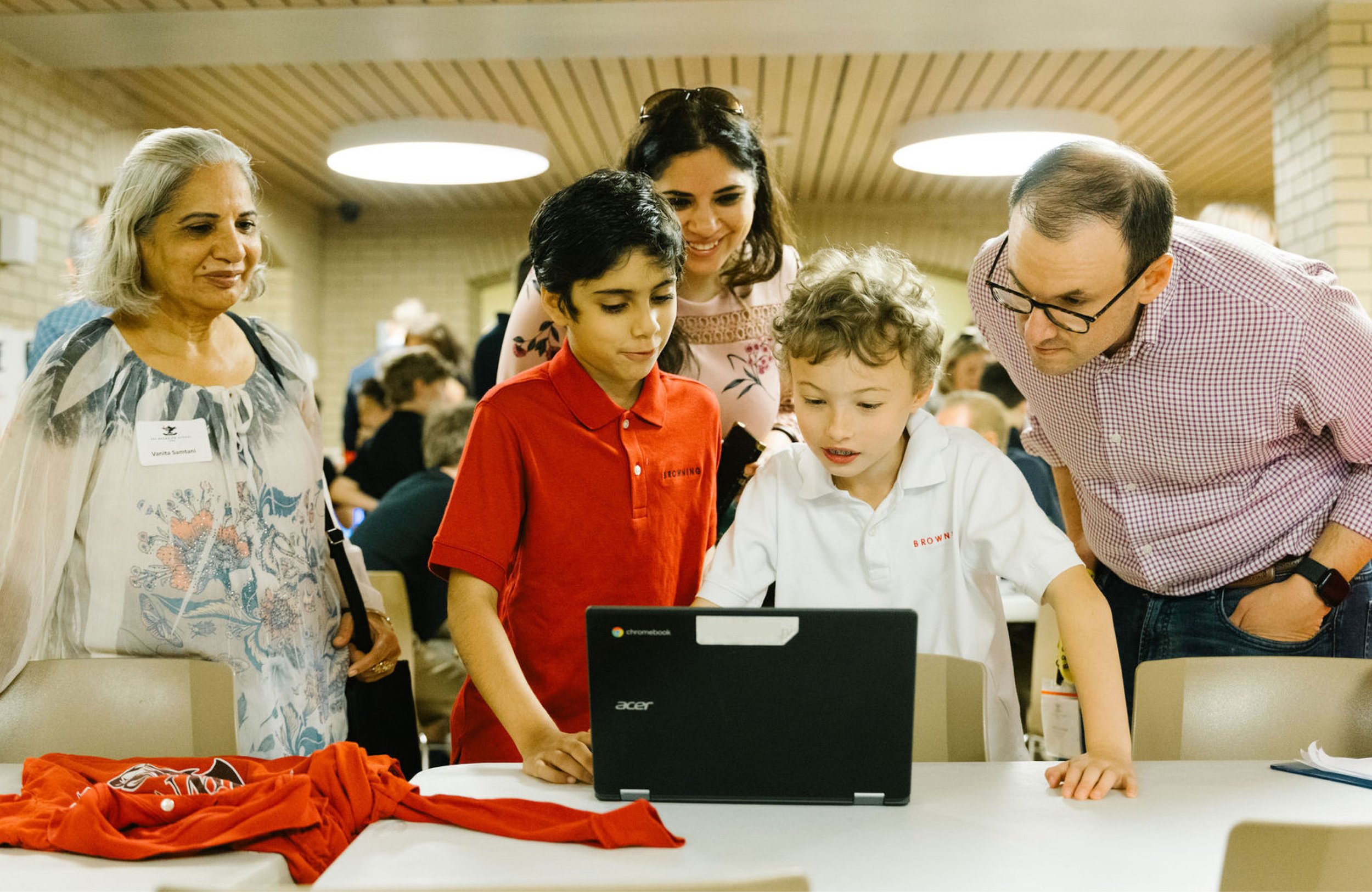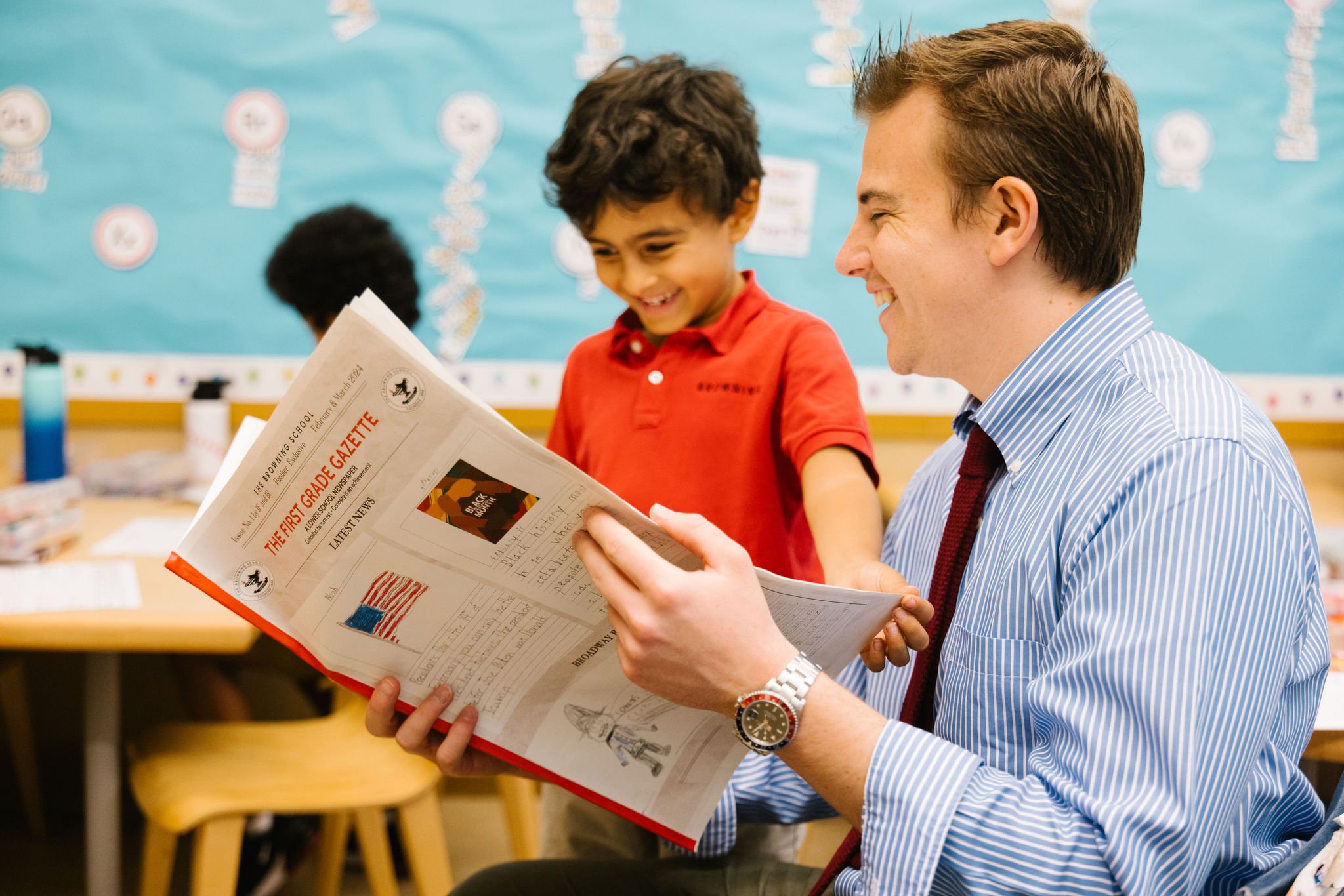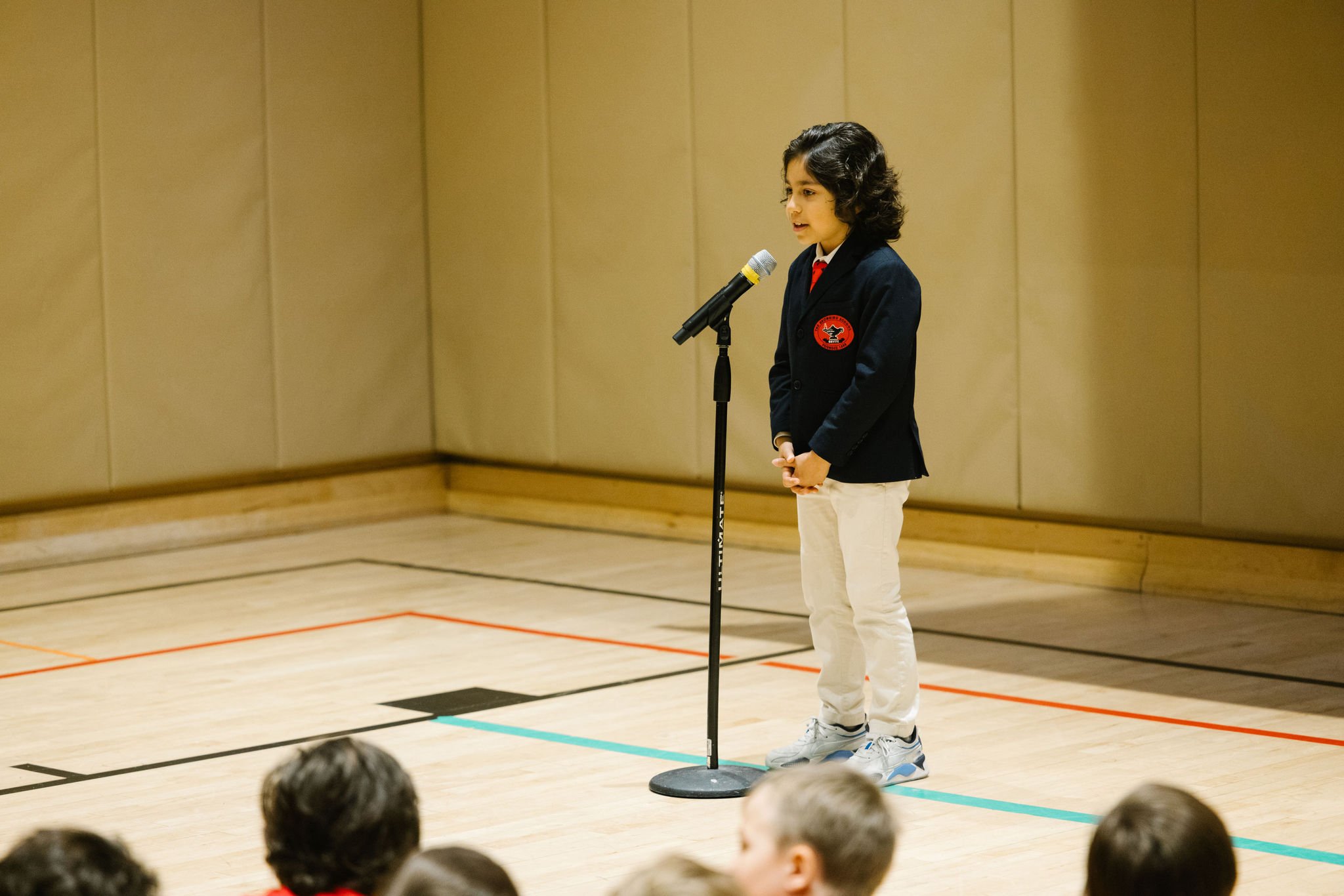Celebrations of Learning Invites Parents to the Classroom
Developing lifelong learning through presentations.
Keeping boys engaged in their intellectual pursuits is crucial to developing lifelong learners at any age. One way to do this is create conditions where boys can demonstrate what they've learned—and what better audience for these demonstrations than their proud families? Enter Lower School's Celebration of Learning.
“These events are one of the ways we reinforce Browning's Target Focused Teaching methods in Lower School,” says Eric Ogden, Head of Lower School. Guided by the book Leaders of Their Own Learning, Lower School faculty engaged in professional development to deploy this method of student-engaged assessment in their own classrooms.
“The big idea is that an authentic audience increases academic engagement,” Mr. Ogden says. Research on teaching and learning in independent boys’ schools done by Michael Reichert and Richard Hawley in 2008 showed that successful teachers employ transitive teaching (the capacity of some element in the lesson to hold student attention in a way that leads to understanding and mastery) such as role play and performance, creating products, gamification, or teamwork/competition.
Grade 1 boys make headlines with the First Grade Gazette, tackling community topics through their classroom newspaper project.
Grade 3 and 4 boys shine in the public speaking program, confidently presenting memorized poems and speeches to classmates, teachers, and families.
While Celebrations of Learning vary from year to year, they can include Kindergarteners showing off their math and phonics prowess, the publication party for Grade 1's newspaper, Grade 2 boys acting as tourism agents revealing their knowledge about New York, self-reported family histories in Grade 3 and the Invention Convention as well as math and writing shares in Grade 4.
These projects are often interdisciplinary and planned in collaboration with specialists. Students usually share their most recent art pieces and the Celebrations of Learning have been co-planned and prepped at times by music, library, science, and our math specialist, among others.
Faculty create sample questions for families to ask their children, so that they can ask focused questions about the learning process. “What are you proudest of with this work?,” “How did you come up with an idea?,” and “What was most challenging or difficult in this project?” are among the most common.
“We know from research that boys are most engaged when they have a chance to present and share their work. A Celebration of Learning allows boys to share both their process of learning and the product they've created, while giving families a chance to really see inside the classroom and the learning process. It's a win-win for everyone,” Mr. Ogden says.





